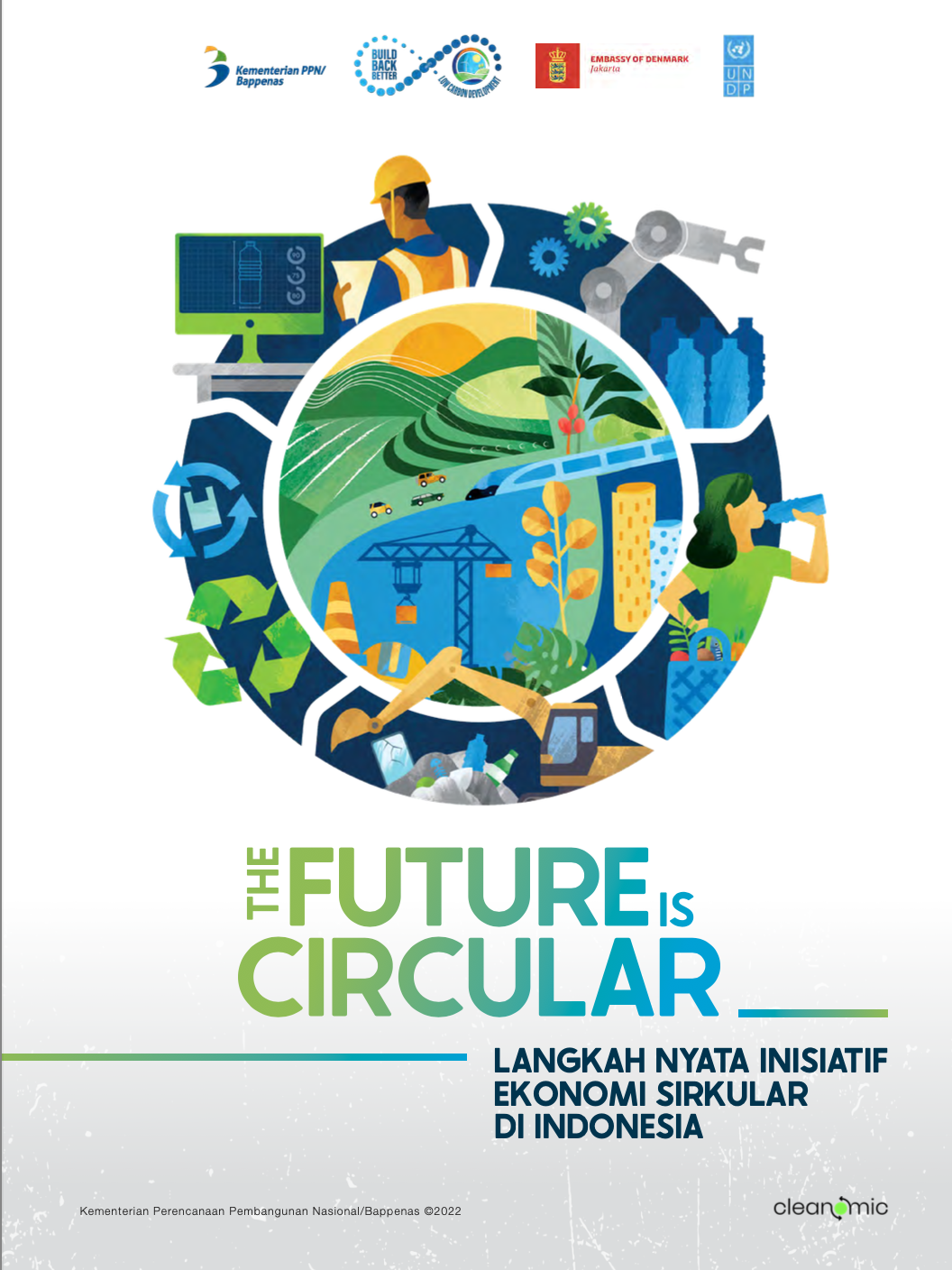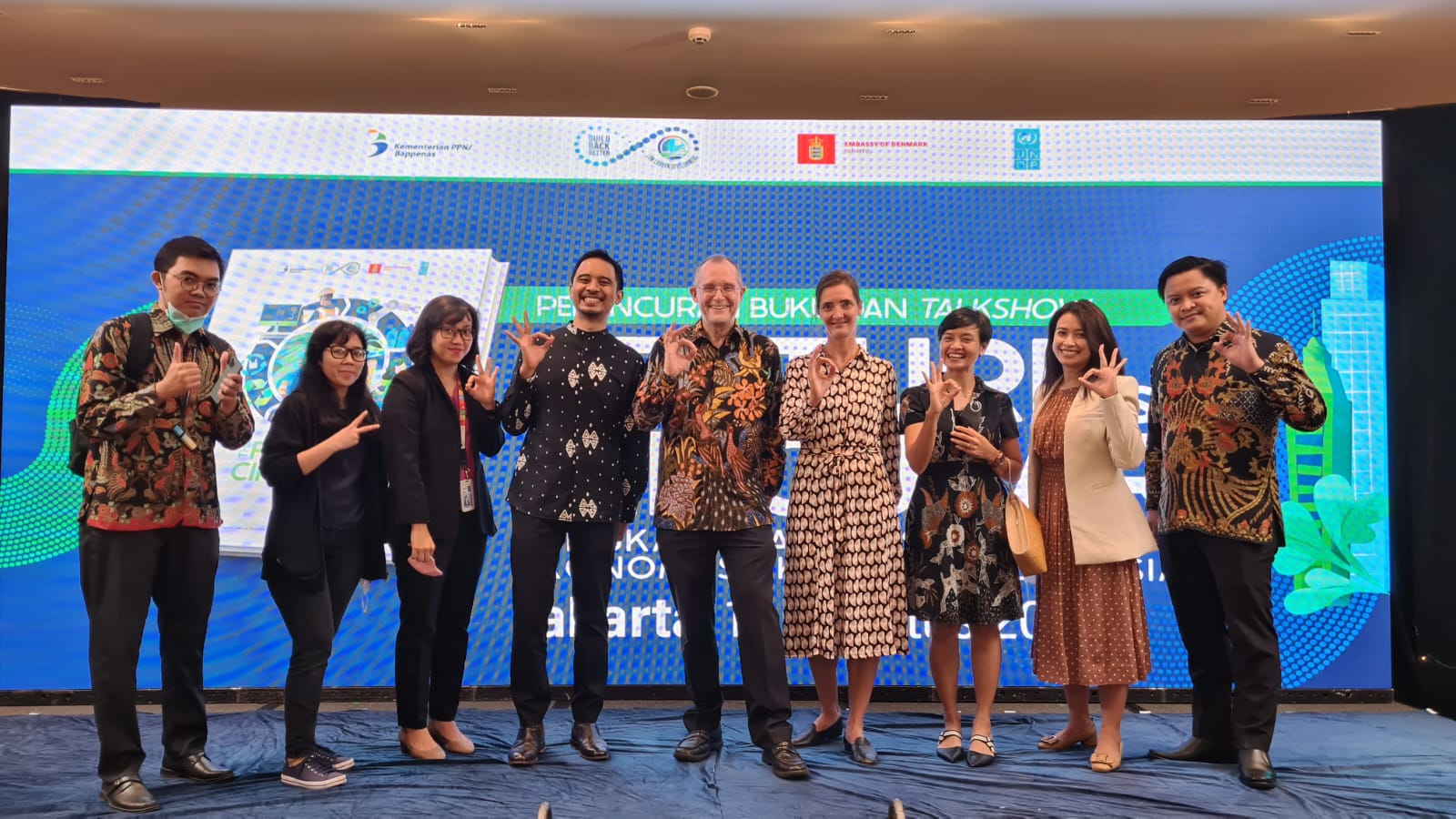UNDP, Bappenas Launch Book on Circular Economy
August 22, 2022

“The Future is Circular: Concrete Steps for Circular Economic Initiatives in Indonesia" published by UNDP, Bappenas, includes initiatives on implementing the circular economy concept from 36 initiators in various sectors and actors including the government, NGOs and the private sector in Indonesia.
JAKARTA – The Ministry of National Development Planning (Bappenas) in partnership with the United Nations Development Programme (UNDP) in Indonesia, supported by the Government of Denmark launched "The Future is Circular: Concrete Steps for Circular Economic Initiatives in Indonesia". The book is part of the initial step in the preparation of a Circular Economic Policy Roadmap in Indonesia, in the context of Low Carbon Development, towards a green economy. The Indonesian government is committed to implementing circular economy as an economic model that optimises the use of resources, designs products to be as efficient as possible, and returns the rest of the production and consumption processes into the production cycle.
The circular economy is not only about managing waste through recycling practices, but also about resource efficiency, encompassing a range of interventions across the supply chain. Therefore, a circular economy is expected to replace a linear economy that uses a 'take-use-dispose' approach that is unsustainable in the long term. “We want to start a circular economy movement for Indonesia's future development, starting with a common understanding among all of us, starting from ministries/agencies, business representatives, media. The hope is that when we say circular economy, we are discussing the same thing. We have conducted a study in Bandung with UNDP and Denmark, if the circular economy is implemented, it has many benefits for Indonesia,” said the Director of the Environment of the Ministry of National Development Planning/Bappenas Medrilzam at the launch of the book in Jakarta on Aug 18.

UNDP and the Ministry of National Development Planning (Bappenas), with support from the of Denmark launched "The Future is Circular: Concrete Steps for Circular Economic Initiatives in Indonesia" Credit: UNDP Indonesia
“In Indonesia, the circular economy concept is in line with the Government of Indonesia's plans to achieve the Sustainable Development Goals (SDGs) and net-zero emissions. UNDP works with the Government of Indonesia to mainstreaming Circular Economy in the national development plan. However, successful implementation of circular economy depends on many enabling factors, including policies, financing, appropriate technology, innovative business models along the supply chain, and active involvement of producers and consumers. It also provides an opportunity for MSMEs. No business is too small to have an impact, but it is collective work that can lead Indonesia towards sustainable development,” said UNDP Indonesia Officer-in-Charge Nicholas Booth.
The book contains initiatives to implement the circular economy concept from 36 initiators in various sectors and actors such as the government, business actors, and non-governmental organisations in Indonesia. Cumulatively, the economic, social, and environmental benefits derived from these 36 initiatives include savings in operating costs of more than IDR 431.9 billion (around USD 30 million), job creation for 14,270 workers, emission reductions of more than 1.4 million tons of carbon dioxide equivalent (CO2e), energy savings of more than 4.8 million megawatt hours, water consumption reduction by more than 252 thousand billion cubic meters, and waste reduction of more than 827 thousand tons.
The implementation of the circular economy in Indonesia focuses on five sectors, namely food and beverage, textiles, construction, wholesale and retail trade, and electronics sectors, which have the potential to increase Gross Domestic Product by IDR 593-638 trillion by 2030, creating annual household savings of nearly 9 percent of the budget, equivalent to IDR 4.9 million or USD 344 per year, and creates 4.4 million jobs with 75 percent of them for women. The implementation of a circular economy in Indonesia can also reduce CO2 emissions by 126 million tons and water usage by 6.3 billion cubic meters in 2030.
This article was originally prepared in Bahasa Indonesia by the Ministry of National Development Planning of the Republic of Indonesia. It has been translated and published with permission.
To access the report (in Bahasa Indonesia), click here:
https://www.undp.org/indonesia/publications/future-circular-undp-bappenas

 Locations
Locations


